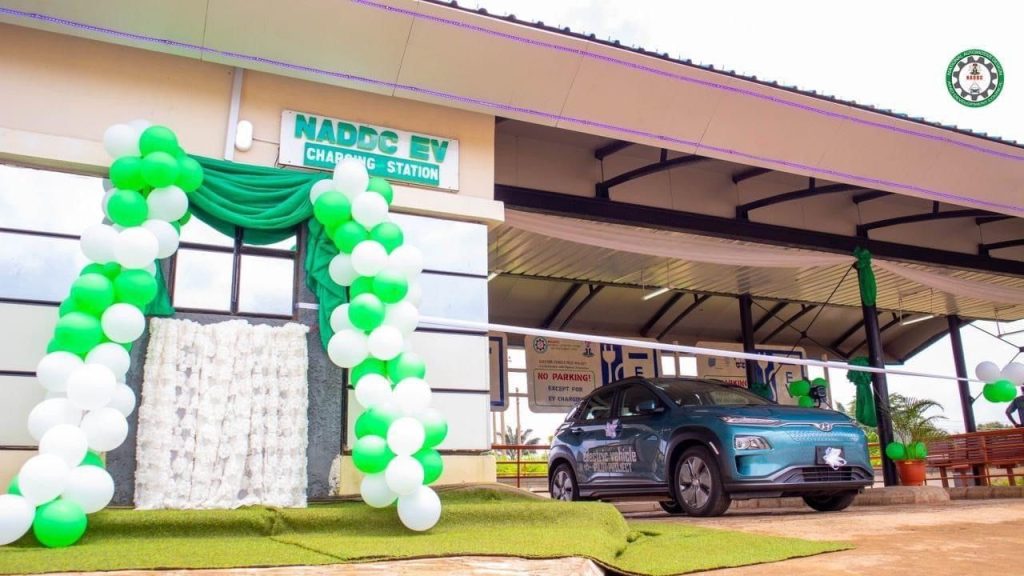Nigerian electric vehicle drivers now have a charging station at their disposal. It has just been inaugurated at the University of Nigeria Nsukka (UNN) in Enugu State. The solar-powered infrastructure was installed by the National Automotive Design and Development Council (NADDC).
It is part of the National Automotive Industry Development Plan 2023 being piloted by the government of this West African country. The pilot phase is being implemented in several public schools, including the Universities of Lagos (UniLag) and Ousmane dan Fodio (Udus) in Sokoto near the border with Niger.
According to Charles Arizechukwu Igwe, Vice-Chancellor of UNN, the initiative will also help to align research laboratories with the requirements of this energy transition in the transport sector. “The global automotive market is in a race for technological progress. Nigerian industry must not be on the sidelines,” explains Jelani Aliyu, Director of NADDC’s Industrial Infrastructure Department. This desire to develop low-carbon and more sustainable mobility is increasingly pressing in Nigeria.
Read also-Gael Escribe: « Nexus will recycle used car batteries in the Indian Ocean »
In 2022, the National Agency for Scientific and Technical Infrastructure (NASENI) signed an agreement with a platform of local, Israeli and Japanese companies to put electric motorbikes on the road in Abuja. The two-wheelers will be assembled locally by the Nigerian industrial group Peramare Enterprise and the Israeli-based company Sixai. The federal authorities hope to rapidly reduce pollution in the Nigerian capital, which has a population of 3.5 million.
Benoit-Ivan Wansi
